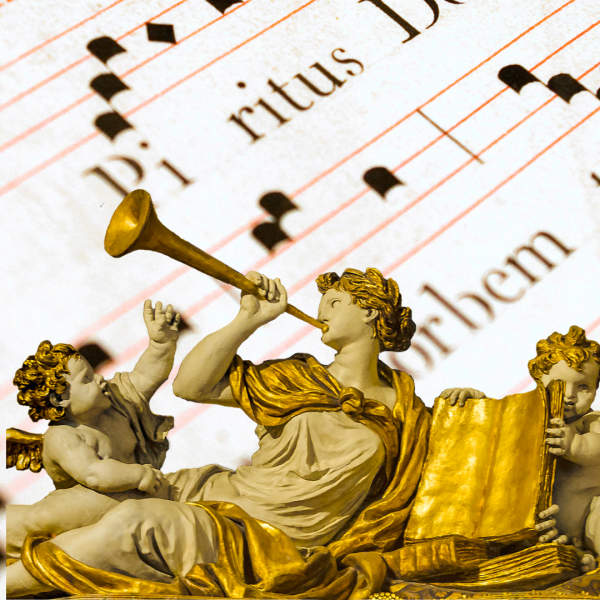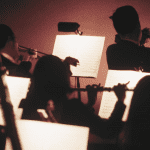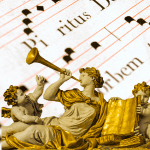Throughout the history of music, there has been a significant gender gap, with female composers often marginalized and their contributions overlooked. Mighty patrons, powerful individuals who provided financial and social support to composers, have played a crucial role in shaping the music landscape. However, their influence has often favoured male composers, perpetuating the gender inequality. I firmly believe that to tackle the existing gender disparity in the music industry, it is crucial to explore its historical roots. By doing so, we can work towards improving the situation. In this article let us explore some of the untold stories of the talented women that had to overcome societal expectations and gender bias. It was through their determination and passion for their craft have allowed them to create extraordinary musical compositions that have stood the test of time.
Ancient Civilizations: Silencing Female Voices
Gender inequality in music and theatre can be traced back to ancient civilizations. In ancient Greece, women were forbidden from participating in public performances, relegating all roles, including female characters, to be played by men. This practice reinforced gender stereotypes and limited women’s artistic expression. Similarly, in ancient China, the Peking opera featured male actors portraying both male and female roles, reflecting the broader societal norms that restricted women’s roles in the performing arts.
Medieval Europe: Confining Women’s Opportunities
Medieval Europe continued to perpetuate gender inequality in music and theatre. The Catholic Church, a dominant force in shaping cultural norms, excluded women from active participation in religious music. Although women were allowed to sing in choirs, they were denied soloist roles and leadership positions. This male control over composition and performance further oppressed women’s voices in the church. There was, however a Byzantine abbess called Kassia (also known as Saint Kassiani or Kassia the Hymnographer) known for her hymns and poetry, many of which are still sung in the Eastern Orthodox Church today.
Renaissance Period: Glimpses of Progress
The Renaissance period brought glimpses of progress in gender equality. With the rise of humanism and the revival of classical antiquity’s values, there was a growing interest in the creative potential of women. Interestingly it was another woman of the Church, a German abbess called Hildegard of Bingen, who, as a composer and mystic, defied societal norms. She composed a vast body of sacred music and wrote medicinal books as well as plays. She was a remarkable women and on her views on gender equality we can only guess. One of the statements attributed to Hildegard is that “woman may be made from man, but no man can be made without a woman”.
Baroque Era: Women’s Talent Shines
The Baroque era witnessed a notable increase in the visibility of women in music, particularly as virtuoso performers. Despite the limited opportunities available, some women managed to showcase their talents and leave an indelible mark on music history.
Barbara Strozzi, an Italian composer and singer, is often regarded as one of the most prolific female composers of the Baroque era. She composed numerous vocal works, including cantatas and arias, which were performed in the salons of Venice. Her talent and creativity surpassed the gender barriers of her time.
Another Italian women of the Baroque, Francesca Caccini, served as a court musician, composer and singer in the Medici court in Florence. She composed operas, madrigals, and sacred music, becoming one of the few women to achieve prominence in the male-dominated world of Baroque opera. Her contributions to the musical landscape were significant and groundbreaking.
Enlightenment and Romanticism: Progress and Setbacks
The Enlightenment and Romanticism periods brought both progress and setbacks in the quest for gender equality in music and theatre. The intellectual movements of the time challenged traditional gender roles, leading to increased opportunities for women. However, deeply rooted societal norms and institutional barriers continued to hinder their full participation.
During this era, women composers faced significant challenges in gaining recognition and opportunities. Although some managed to make notable contributions, many were overshadowed by their male counterparts. Despite facing adversity, these women composers left an undeniable impact on the trajectory of music history.
Nineteenth Century: The Rise of Female Composers
The nineteenth century witnessed a growing number of female composers emerging from different parts of the world. These women defied societal expectations and became pioneers in their own right, contributing to the evolution of music in unique and powerful ways.
Clara Schumann, a virtuoso pianist and composer, played a significant role in the Romantic era. Despite facing numerous challenges, including a demanding performance schedule and raising a family, she managed to compose a substantial body of work. Her compositions, such as the renowned “Piano Concerto in A Minor,” showcased her extraordinary skill and artistic innovation.
Fanny Mendelssohn Hensel, the older sister of composer Felix Mendelssohn, was another remarkable composer of the nineteenth century. Although societal expectations limited her opportunities, she composed over 400 pieces, including chamber music, piano works, and songs. Her compositions continue to captivate audiences with their depth and emotion.
Not to forget the French composer and pianist Louise Farrenc who worked during the early to mid-19th century. She composed symphonies, chamber music, and piano works. Farrenc’s compositions were well-regarded during her time, and she made notable contributions to the development of chamber music.
Conclusion
The history of gender inequality in music and theatre reveals a long-standing struggle for recognition and opportunities for female composers. Despite facing immense challenges and systemic barriers, women composers have made profound contributions throughout history. From the early roots of inequality to the rise of virtuosic performers and pioneering composers, their resilience and creativity have shaped the musical landscape. In part two we will look into the achievements of female composers in the 20th century.







0 Comments